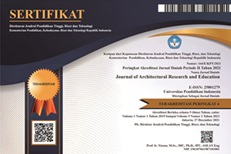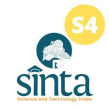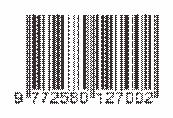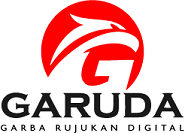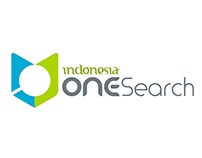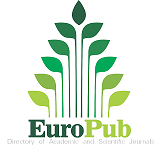Management of Teaching Material Development Competency-Based to Increase Life Skill Vocational High School Students
Abstract
Full Text:
PDFReferences
Alam, S. (2016). Tingkat Pendidikan dan Pengangguran di Indonesia (Telaah Serapan Tenaga Kerja SMA/SMK dan Sarjana). Jurnal Imiah BONGAYA (Manajemen & Akuntansi).
Andoyo, A., & Rianto, R. (2015). Program Aplikasi Nilai Siswa Pada SMK Muhammadiyah Pringsewu Sebagai Penunjang Pengambilan Keputusan Siswa Berprestasi Menggunakan Visual Basic 6 . 0. Jurnal TAM (Technology Acceptance Model).
Hadi, P. U., & Mardianto, S. (2016). Analisis Komparasi Daya Saing Produk Ekspor Pertanian Antar Negara Asean dalam Era Perdagangan Bebas AFTA. Jurnal Agro Ekonomi. https://doi.org/10.21082/jae.v22n1.2004.46-73
Hanim, Z., Masyni, M., Soe`oed, R., & Asiah, S. N. (2019). Learning Innovation Management on Effective Classes at SMPIT Cordova Samarinda. Dinamika Ilmu. https://doi.org/10.21093/di.v19i2.1586
Ilyasin, M. (2020). Transformation of Learning Management: Integrative Study of Islamic Boarding School Curriculum. Dinamika Ilmu. https://doi.org/10.21093/di.v20i1.2006
Khoiroh, M., & Prajanti, S. D. W. (2019). Pengaruh Motivasi Kerja, Praktik Kerja Industri, Penguasaan Soft Skill, Dan Informasi Dunia Kerja Terhadap Kesiapan Kerja Siswa Smk. Economic Education Analysis Journal. https://doi.org/10.15294/eeaj.v7i3.28336
Ningrum, E. (2016). Pengembangan Sumber Daya Manusia Bidang Pendidikan. Jurnal Geografi Gea. https://doi.org/10.17509/gea.v9i1.1681
Nurdyansyah, & Mutala’liah, N. (2015). Pengembangan Bahan Ajar Modul Ilmu Pengetahuan Alambagi Siswa Kelas IV Sekolah Dasar. Program Studi Pendidikan Guru Madrasa Ibtida’iyah Fakultas Agama Islam Universitas Muhammadiyah Sidoarjo.
Permana, A. Y., Aprilia, D. I., & Teniola, N. Q. I. (2019). Teacher Skills Through t he Development of Design a nd Develop Learning Program Taedes 401 ( gov . au ) for Building Core Skill a nd Employability Skills for Vocational High School. Advances in Social Science, Education and Humanities Research, 379(Veic), 385–395. https://www.atlantis-press.com/proceedings/veic-19/125927437
Permana, A. Y. (2008). Re-orientasi Pengembangan Pendidikan Kejuruan di Era Globalisasi melalui Penjaminan Mutu. SEMINAR INTERNASIONAL Revitalisasi Pendidikan Kejuruan Dalam Pengembangan SDM Nasional APTEKINDO, 149–160.
Ramadhan, M. A. (2015). Pengembangan Sumber Dana Sekolah Pada Sekolah Menengah Kejuruan Developing the Source of School Funds in. Jurnal Pendidikan Vokasi.
Ramadhan, M. A., & Sugiyono, S. (2015). Pengembangan Sumber Dana Sekolah Pada Sekolah Menengah Kejuruan. Jurnal Pendidikan Vokasi. https://doi.org/10.21831/jpv.v5i3.6488
Ramdhan, D. F., & Syafe’i, I. (2019). Strategic Management in Increasing Educational Participation for 12-year Compulsory Education. Jurnal Pendidikan Islam. https://doi.org/10.15575/jpi.v5i2.5233
Romadhoni, E. N. A., Widiyaningtyas, T., & Pujianto, U. (2015). Implementasi Model Waterfall Pada Pengembangan Sistem Informasi Alumni SMKN 1 Jenangan Ponorogo. Seminar Nasional Sistem Informasi Indonesia.
Su’udiah, F., Degeng, I., & Kuswandi, D. (2016). Pengembangan Buku Teks Tematik Berbasis Kontekstual. Jurnal Pendidikan - Teori, Penelitian, Dan Pengembangan.
Suwanto, I. (2016). Konseling Behavioral Dengan Teknik Self Management Untuk Membantu Kematangan Karir Siswa SMK. JBKI (Jurnal Bimbingan Konseling Indonesia). https://doi.org/10.26737/jbki.v1i1.96
Syafe’i, I., & Ramdhan, D. F. (2019). Arabic Learning Model Development In Improving Reading Skill. INFERENSI: Jurnal Penelitian Sosial Keagamaan. https://doi.org/10.18326/infsl3.v12i2.283-305
Utami, Y. G. D., & Hudaniyah. (2013). Self Efficacy Dengan Kesiapan Kerja Siswa Sekolah Menengah Kejuruan. Jurnal Ilmiah Psikologi Terapan.
Wahzudik, N. (2018). Kendala dan Rekomendasi Perbaikan Pengembangan Kurikulum di Sekolah Menengah Kejuruan. Indonesian Journal of Curriculum and Educational Technology Studies. https://doi.org/10.15294/ijcets.v6i2.26712
Wibowo, N. (2016). Upaya Memperkecil Kesenjangan Kompetensi Lulusan Sekolah Menengah Kejuruan dengan Tuntutan Dunia Industri. Jurnal Pendidikan Teknologi Dan Kejuruan. https://doi.org/10.21831/jptk.v23i1.9354
Zuriah, N., Sunaryo, H., & Yusuf, N. (2016). IbM GURU DALAM PENGEMBANGAN BAHAN AJAR KREATIF INOVATIF BERBASIS POTENSI LOKAL Nurul Zuriah 1 , Hari Sunaryo 2 , Nurbani Yusuf 3. Dedikasi.
DOI: https://doi.org/10.17509/jare.v3i1.33229
Refbacks
- There are currently no refbacks.
Copyright (c) 2021

This work is licensed under a Creative Commons Attribution-NonCommercial-ShareAlike 4.0 International License.

This work is licensed under a Creative Commons Attribution-ShareAlike 4.0 International License.


